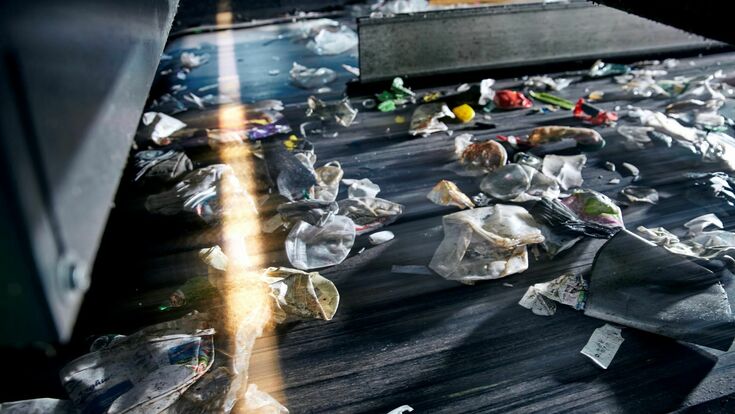Waste Sorting : STADLER and KRONES collaborate in designing new recycling plant

The facility for processing post-consumer HDPE and polypropylene (PP) packaging waste is the first of its kind in the country: it closes the plastics circular economy loop with its output of extremely high quality recyclates that can be used again in the same packaging applications – including those requiring food grade material. The plant was designed to produce annually approximately 30,000 tonnes of recyclates that can be returned to the manufacturing cycle. In addition, the process itself delivers environmental benefits through a reduction in material loss and water consumption, saving up to 36,100 tonnes of CO2 equivalents per year by processing around 38,000 tonnes of plastic waste.
Sorting plastics by colour: closing the circular economy loop
With its new plant, KRG aims to produce high-quality recyclates capable of meeting the demands of branded goods companies and the Fast Moving Consumer Goods (FMCG) sector. This would not be possible by following the common practice in HDPE and PP post-consumer packaging recycling, which produces low-quality, dark colour recyclates that can only be used in lower applications.
To achieve the desired result, the pre-sorted materials coming from Light Packaging Plants are first processed through the sorting line designed and installed by STADLER. With a capacity of approximately 10 tonnes/hour, the line operates in two different modes depending on the material being fed – one for PP materials and another for HDPE. The input materials are screened to eliminate fines, metals are separated using an over belt magnet and eddy current, and light film is extracted by an air sorter.
Seven Near-Infrared (NIR) sorters separate the remaining material into 6 product fractions separated by colour. Part of the output materials is fed immediately into 2 KRONES lines, located in the same hall, while the rest is baled and stored for later processing.
In the KRONES lines, each with a capacity of 2 tonnes/hour, the pre-sorted material is ground into flakes and pre-rinsed before being processed in its patented hot-washing system. Final rinsing and sorting according to colour and polymer complete the process to produce perfectly clean flakes of the high-quality required for recycling in their original packaging applications.
STADLER and KRONES have developed a successful collaborative relationship over the years in a number of joint projects, which have led to their joining forces in a partnership to harness the advantages of plastics recycling by combining their respective specialist expertise and technologies.
